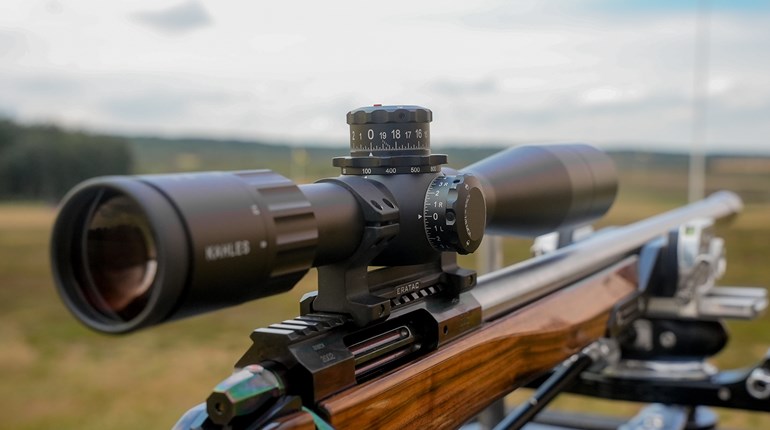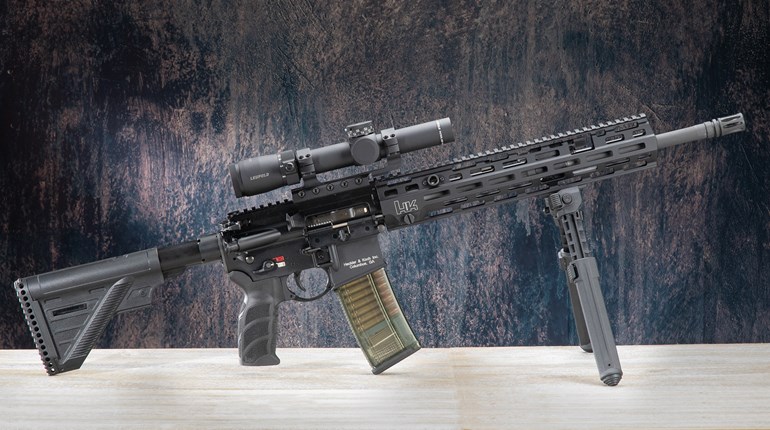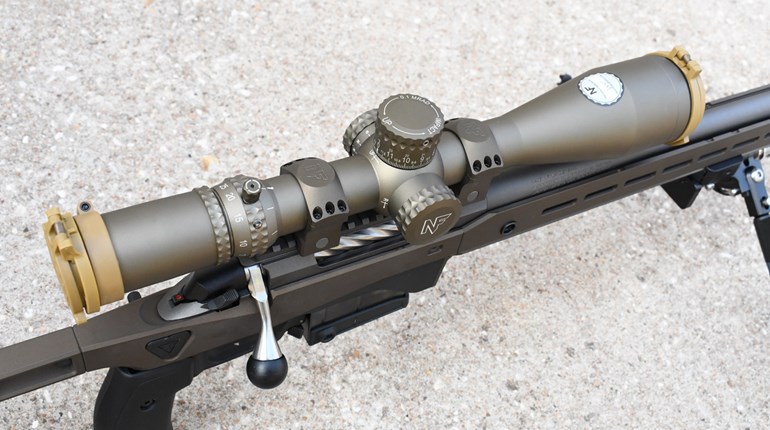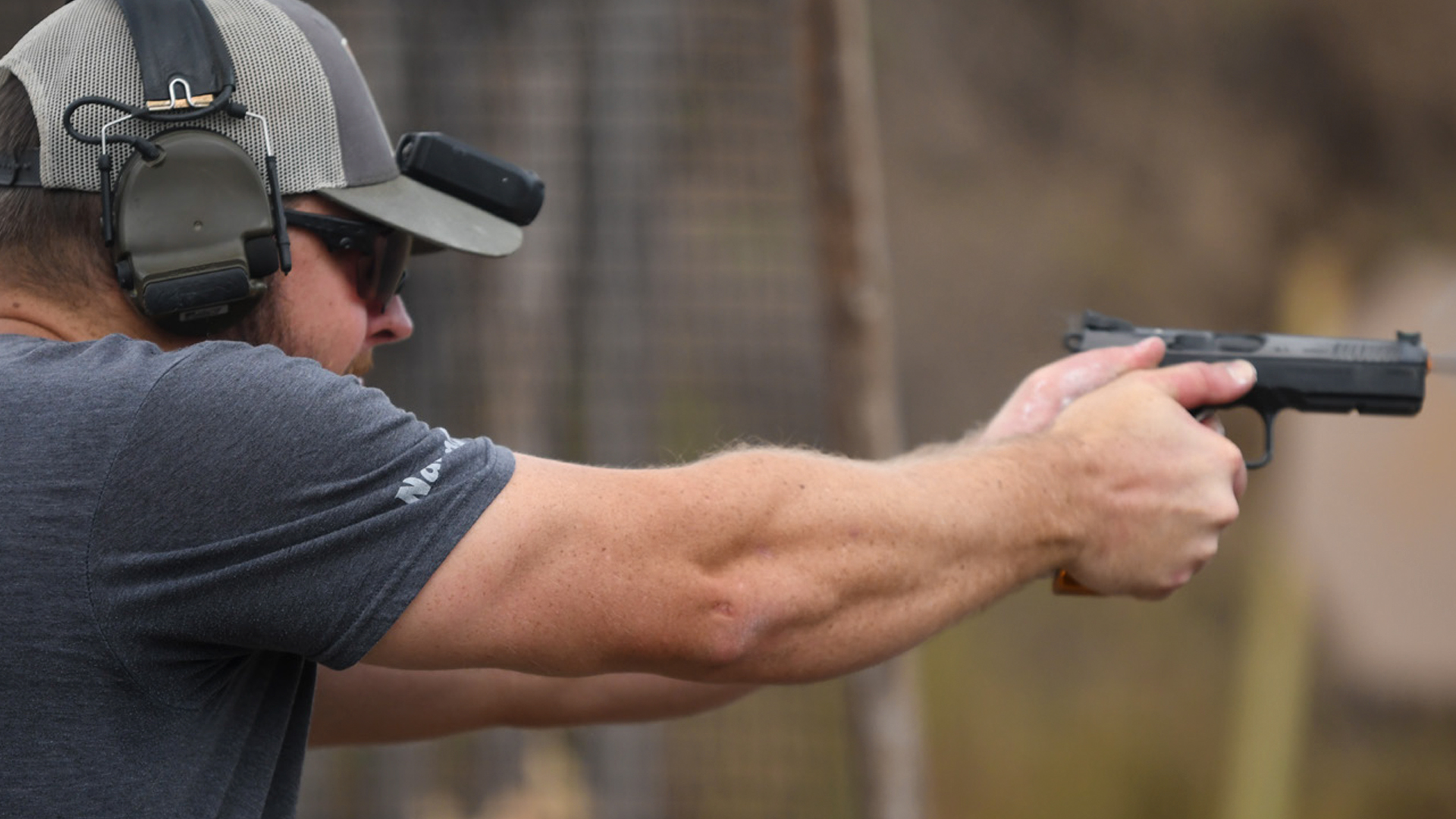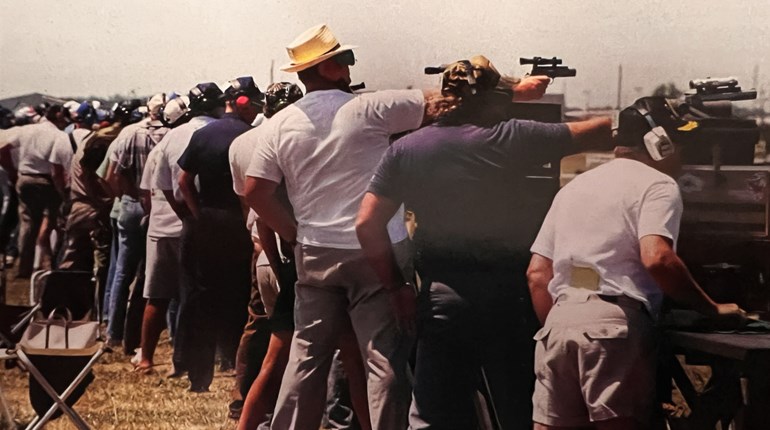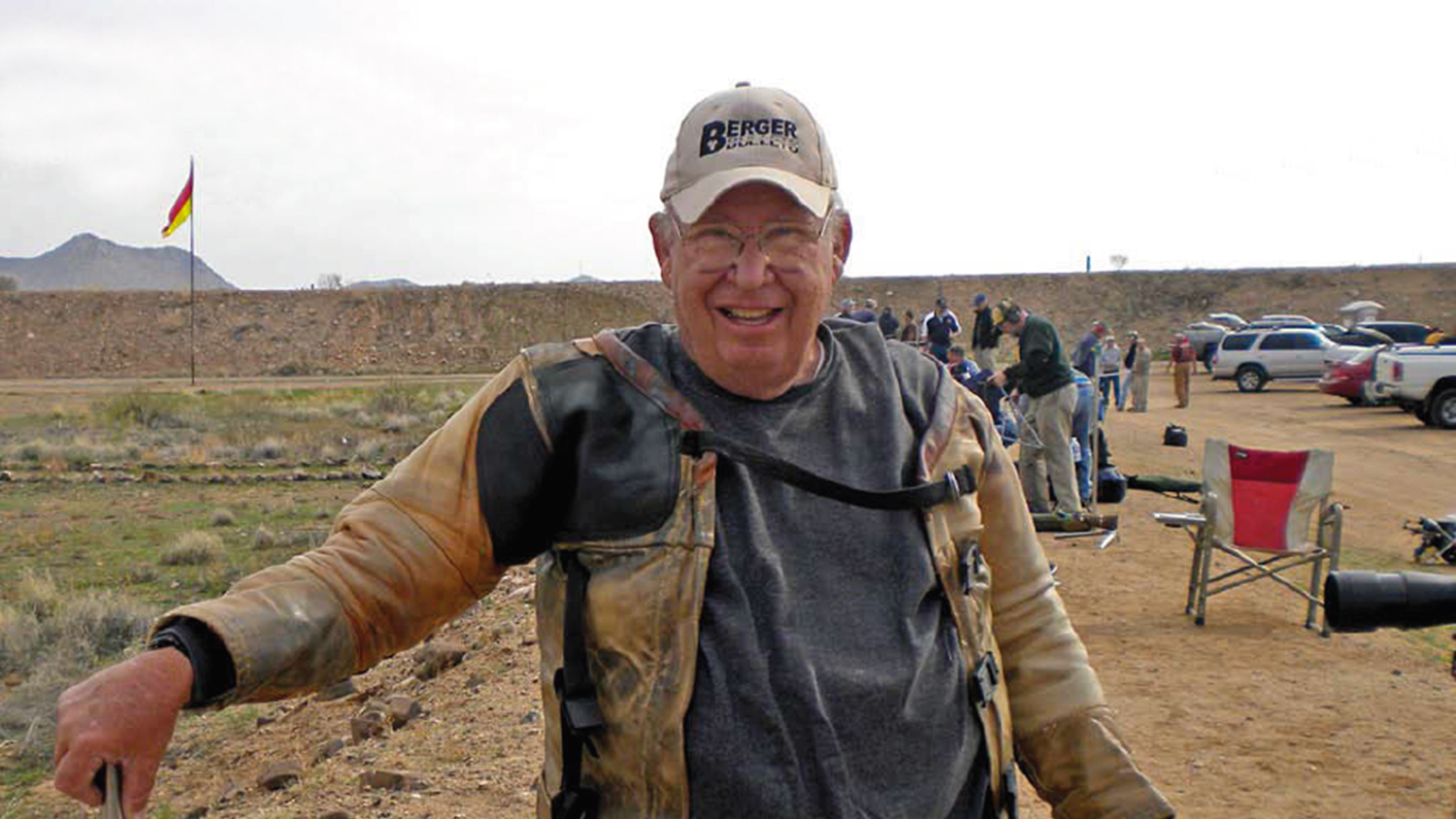
In March 2010 I was fortunate enough to participate in a short course on how to win at high power for the rest of my life. At least that’s what the interview turned out to be as I took notes at his home in Prescott, AZ, listening to veteran champion Middleton “Mid” Tompkins.
We all want to be winners. Universal among competitors in any sport are the questions, “How are the winners doing it?” and, “What equipment are they using?” Asked of high power rifle champion Mid Tompkins the answers are, “Dedication” and, “Not much.” Mid is a six-time across-the-course national high power rifle champion. He’s also been on 18 Palma teams as captain, coach or shooter. “I can’t count the number of state records I hold and I have no knowledge of how many national records I have set,” he said. Mid started shooting smallbore rifle over 60 years ago, competing in that discipline at Camp Perry in 1954. When a traveling companion and high power match referee convinced him to shoot Perry’s high power portion, the seed was planted. After shooting high power again in 1955, Mid never went back to smallbore. “I liked high power’s diversification of standing, sitting, rapid fire and long range shooting.”
Mid On Equipment
Mid’s first high power rifle was a Winchester Model 70. “Then I went to an M1 in .30-06. Let’s face it—that’s what everyone used in the ‘50s. Then I changed to a .308 M1 in ‘63 or ‘64, and then on to the M14.” Once he shot the Model 70 in .308, Mid didn’t change calibers for almost 30 years. “It wasn’t until the ‘90s before I went to the 6.5 mm,” which is his present choice—6.5x284.
Mid On Ammo
Mid does not use practice ammo. “If it isn’t the best ammo he owns, the shooter learns absolutely nothing because they don’t know—when they shoot an 8, if they shot it, the ammo shot it or the gun shot it.” Mid is perhaps remarkably nonchalant about prepping his brass, but he bases his opinions on years of experimenting. Yes, he trims brass to length, but feels that a thousandth or two difference among cases isn’t all that critical for Long Range competition. Nor does he worry about uniforming primer pockets and flash holes. “It may make a difference in benchrest shooting, but it darn sure doesn’t make a difference in our shooting, especially from 600 yards.”
Mid chooses match bullets from Sierra and Berger but doesn’t use VLD-style bullets. He “soft-seats” them about finger-tight in the cases and lets the barrel seat them to depth.
Mid On Scorebooks
For Mid, wife Nancy and stepdaughters Michelle and Sherri, it’s always been more about the shooter than the equipment—a minimalist approach. I first noted this trait when I was squadded with Michelle at a long-range match years ago. While scoring for her (yes—they were pretty much all 10s & Xs), I saw that she didn’t use a scorebook and she stuck with her iron sights when she could have used a scope for the “any sight” portion of the match. The benefit of sticking to one sight is understandable, but not using a scorebook to plot shots and windage? I asked Mid if he taught Michelle to use a scorebook to which he replied, “I totally, totally do not believe in scorebooks,” he said. “It takes away your concentration from what you should be doing, which is doping the wind and pointing the rifle downrange. Shooting is not about book keeping. Shooting is about putting a bullet in the middle of the target.”
But aren’t scorebooks important for a beginning shooter? “I think the only reason to have a book is to write down your sight settings,” he said. Mid tells the story of being squadded with a long-range shooter who was scoring in the 160s and keeping meticulous scorebook records between shots. When he asked Mid what he could do to raise the score, Mid threw his scorebook forward of the firing line. “Now concentrate on putting the shot in the middle of the target,’ I said. The guy began shooting in the 190s. As far as I know, he left the scorebook laying out in front of the line.”
Mid concedes that service rifle shooters can help keep their groups centered in timed and rapid fire by recording their groups and sight settings in a scorebook. “But recording groups is done after the shooting, not during. Instead of plotting the shot you just fired, concentrate on doping the wind while the target is in the pits. This is what I tried to stress with Sherri and Michelle.”
Mid On Practice
For decades, Mid shot every Saturday and Sunday, whether for practice or in a match. A Californian in his earlier career, Mid shot with four different clubs, each hosting their own match on a different weekend. He shot them all, as well as practicing the day before each match. That’s in addition to competing in Sanctioned and Registered matches.

And then I asked the question every across-the-course high power shooter wants to ask a champion: How can I improve my offhand scores? “A lot of people aren’t going to like what I’m going to tell them.” Mid paused before continuing. “There’s probably only one percent of the shooters in the United States who can shoot standing. It’s something some people have the knack for, and some don’t. You can train all your life and get better, but you’re never going to come up to the ability of that elite person. At National Matches, you can sit back and say, ‘One of those 10 people are going to win because they are the best standing shooters.’ Matches are won standing, and lost in the other positions.”
Mid On The Future
After nearly 60 years of competitive shooting and winning, Mid said he’s making a few concessions to age. “I haven’t shot service rifle in at least 15 years, and I’m not shooting across the course anymore,” he said. “At 73 I’ve decided to give up some stuff. It’s gotten to the place where I’ve got to pace myself, and as a result, I pace myself shooting long range. I don’t like to shoot 7 to 8 days in a row anymore [such as at Camp Perry]. I find I get too tired after a long grind.”
Practice for Mid is two weekends a month now, and he’s retired from Palma shooting. He’s never compiled a list of his titles or awards. “The big motivation for me is winning. It’s basically for yourself. I’m not doing it for the dollars. Its self-gratification, I guess you could say.” And Mid is adamant that the sport should stay that way. “Up until 15 years ago no one even tried to promote their winning into monetary gain,” he said. “People keep saying we need to have big prizes in shooting, but I’ve been against it for years mainly because that instigates bending the rules and gamesmanship. When you’re doing it for the dollars, it’s an entirely different sport.”
“But I still enjoy it. I’m not going to quit.” How long will Mid keep shooting? “As long as I can see and hold a rifle. If I have to, I’ll go F-Class,” he said with a laugh. Today, Mid is still shooting long range competitions and he did try his hand at F-Class a few years ago. And, to no one’s surprise, he won the very first F-Class match he ever attended—the first World Championship held in South Africa in 2005.













